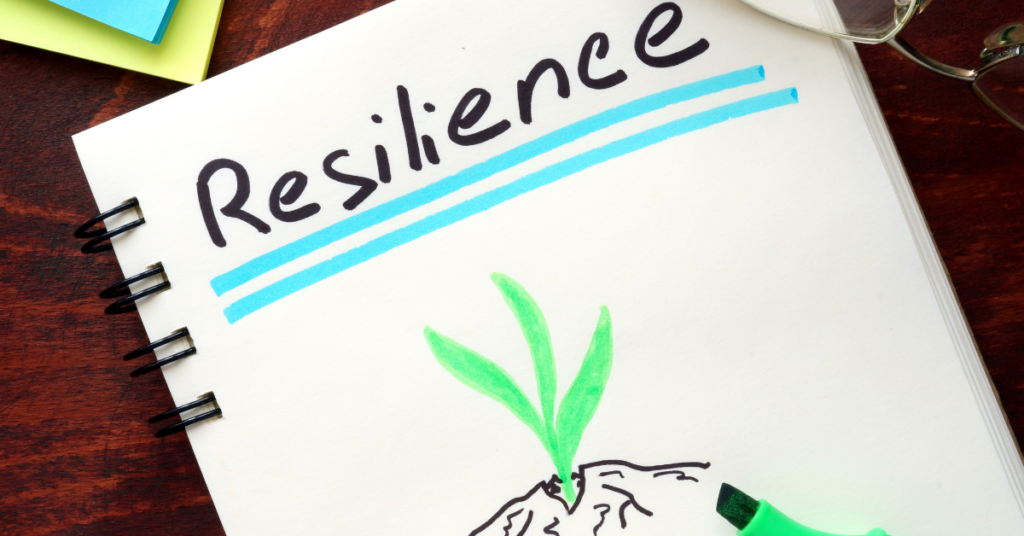Raising a child can be one of the most challenging things that you’ll ever do. One of the best ways to ensure your little one is prepared for whatever life throws their way is to is by increasing resilience in children. In this article, we will discuss 5 tips for raising resilient children so they can better deal with adversity in their lives.
What Is Resilience?
Before we discuss how to raise a resilient child, it’s important that we first define what resilience is. Resilience can be defined as the ability of a person to cope with and adapt positively to stressors and adversity in their life. This can include anything from dealing with bullying at school to coping with the death of a loved one.
Resilience In Children
Now that we have a better understanding of what resilience is, let’s take a look at some of the basics when it comes to resilience in children. One of the most important things to keep in mind is that resilience is not a single trait, but rather it is made up of several different traits. Some of these include:
- Coping skills: This includes being able to problem solve and manage stressors in a healthy way.
- Emotional regulation: This refers to the ability to control one’s emotions and react calmly in difficult situations.
- Self-esteem: Having a positive self-image is key to being resilient.
- Social support: Having people you can rely on helps build resilience.
Causes Of Resilience In Children
Now that we have a better understanding of what resilience is, let’s take a look at some of the factors that can lead to increased resilience in children. One of these may be living in a supportive environment with positive role models and mentors. This allows your child to see how others cope with stressors so they know coping skills themselves.
Another factor is being able to foster strong self-regulation skills early on. By teaching them healthy ways of dealing with their emotions from an early age, it sets them up for success throughout life as they learn new coping techniques through trial and error later on down the road if needed.
One more thing you need to keep in mind is the importance of social support when it comes to building resilience or lack thereof. If a child has few people they can rely on, this can lead to increased vulnerability and decreased resilience. Conversely, if a child has many supportive relationships, it will help increase their ability to cope with stressors.
5 Tips for Raising a Resilient Child
So how can you help your child develop this important life skill? Here are five tips:
Help Them Develop a Strong Sense of Self-Esteem
One of the most important things you can do to help your child become resilient is to help them develop a strong sense of self-esteem. When children feel good about themselves, they are more likely to be able to cope with setbacks and adversity. You can help boost your child’s self-esteem by praising them for their accomplishments, no matter how small, and teaching them to accept compliments graciously. You should also avoid putting down your child or making them feel unworthy.
Encourage Them to Take Risks
It’s important for children to feel like they can take risks and explore their world. This will help them learn how to cope with failure and setbacks. If your child feels like they can’t take risks, they may be less likely to try new things and push themselves out of their comfort zone. Encourage your child to participate in activities that allow them to experiment and explore, such as sports, music lessons, or art classes.
Teach Them How to Handle Emotions
Children need guidance on how to handle their emotions. When they don’t know how to deal with strong feelings such as anger, sadness, or fear, it can be difficult for them to cope with stressors and adversity. You can help teach your child healthy ways to deal with emotions by showing them how to express themselves in a healthy way, such as through talking, writing, or painting. You can also help them learn how to regulate their emotions by teaching them breathing exercises or mindfulness techniques.
Help Them Build Strong Relationships
Children need to have strong relationships with supportive adults who can offer encouragement and guidance. These relationships can provide a child with a sense of stability during tough times. Make sure your child has positive relationships with family members, friends, teachers, coaches, and other mentors.
Encourage Them to Help Others
Helping others is another great way for children to learn resilience. When they see that they can make a difference in the lives of others, it can give them the boost they need to cope with difficult times. Encourage your child to participate in service projects or donate their time and talents to a good cause.
With these tips, you can help your child develop the resilience they need to thrive during tough times. Remember, resilience is not a trait that someone is born with – it’s something that can be learned and developed over time. So start early and encourage your child to practice these skills regularly so they are prepared for whatever life throws their way.
Positive Impact Of Resilience In Children
There are many positive impacts of resilience in children. Here are just a few:
- Resilient children are more likely to thrive academically and have successful careers.
- They are also more likely to maintain healthy relationships and avoid risky behaviors.
- Resilience helps children bounce back from setbacks and adversity, which can make them stronger and better prepared for the challenges life throws their way.
- Resilient children often have a positive outlook on life and are more optimistic than those who aren’t. This can help them overcome obstacles with greater ease.
As you can see, resilience is something your child should strive for! By teaching them the skills needed to be resilient, you are setting them up for a successful and happy life.
Negative Impact Of Resilience In Children
There is a lot of research that suggests that resilience has negative impacts on children. Resilience can lead to increased anxiety and stress in children, as they feel like they need to continuously prove themselves. If you are a resilient child, it might be hard for you to trust other people and form close relationships. This is because you have dealt with difficult situations on your own. It is important to know the benefits of resilience. It can make you stronger. Though there are some bad things about it, they don’t matter because there are more good things than bad.
Helping Someone Who Is Bringing Up A Resilient Child
If you are helping someone who is bringing up a resilient child, it’s important to have patience and compassion. As mentioned before, resilience can sometimes lead to increased anxiety in children. If your friend or relative has a very young child with an anxious temperament, they might benefit from working on coping mechanisms that don’t rely on willpower alone (which most children do not possess). With older kids, make sure the expectations of them aren’t too high – if their schedule is packed with extracurricular activities this can also cause stress and anxiety for the student.
Tips To Increase Resilience In A Child
Here are some tips to increase resilience in a child:
- Encourage participation in extracurricular activities such as sports, music, and clubs.
- Help them develop a positive outlook on life and teach them how to cope with difficult situations.
- Encourage them to help others in need and participate in service projects.
- Make sure they have a strong support system of adults who can offer encouragement and guidance.
- Teach them how to deal with stress in healthy ways, such as exercise, relaxation techniques, and journaling.
- As you can see, resilience is something that can be learned and developed over time. By teaching your child the skills needed to be resilient, you are setting them up for a successful and happy life!
Conclusion
Resilience is the ability to bounce back from adversity and failures, as well as a positive mental outlook that can help people recover. Resilient children often have an optimistic view of themselves and their situation. They don’t dwell on negative thoughts or past mistakes; instead, they focus on how things could be better in the future. The research has shown that children with low resilience may experience problems such as anxiety, depression, anger issues, lower self-esteem, feelings of hopelessness, and helplessness. Parents should try to teach these healthy habits early so kids will grow up more confident individuals who know how to deal with life’s challenges on their terms. What do you think? Share your opinion!
For more information and Guidance, please contact MantraCare. If you have any queries regarding Online Child Counseling or Teen Counseling experienced therapists at MantraCare can help: Book a trial therapy session








